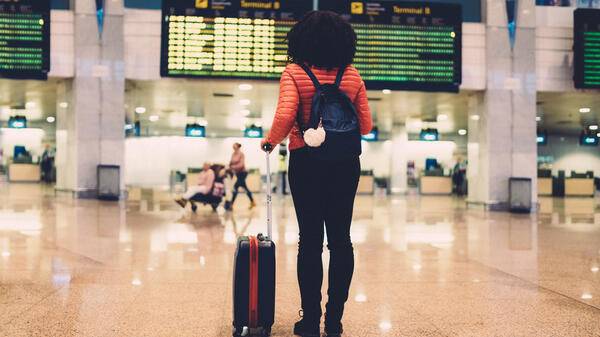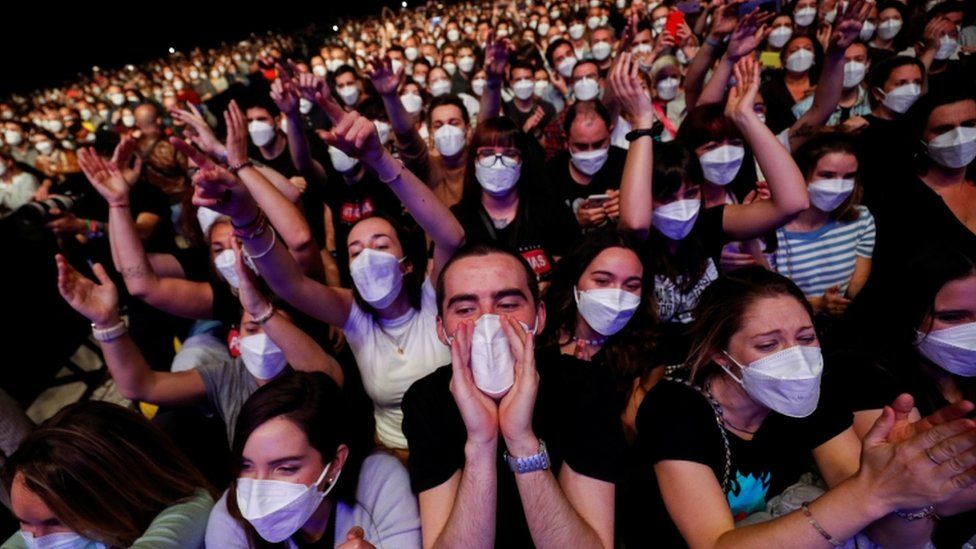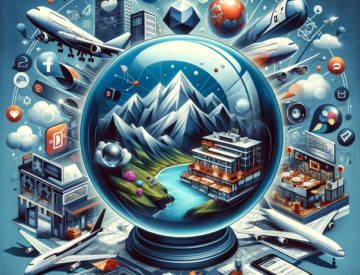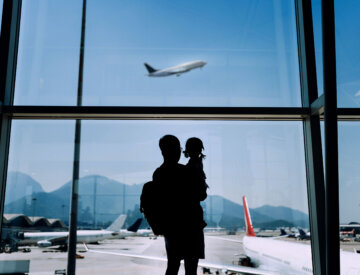After more than a year since Covid-19 pandemic has hit the global stage, the travel industry is starting to look into the future with glimmers of hope. Occupancy rates in many touristic areas in the US and Mexico are showing real signs of rebound nearing almost 70-80% of 2019 levels, in some cases. US airports are also showing real signs of recovery, in particular during last month with Spring Break festivities. But if we look at the big picture, specially in the short term (next couple of months), perspectives are still bleak.
Here are seven reasons why we must tread carefully with the concept of revenge travel and our ever-so strong desire to pack up and leave for the unknown.
1. COVID-19 Pandemic is nowhere near finished
First and foremost, this whole pandemic ordeal is far from over. Third wave is hitting hard in countries like India and Brazil, while other countries that fared well during the first two waves are seeing a sudden surge. Think of Germany, for example, or Canadian provinces like Alberta or Ontario.
But vaccination is going well and reaching a critical mass in many countries, right? Well, it depends. Sure, there are the known leaders of the pack: Israel, UAE, Chile, UK, USA. And most Western countries are catching up, for example in Canada we are now at 45% of the adult population vaccinated, which is similar to rates in many European countries (Germany, France, Spain, etc.). Yet when looking at what is happening in Japan, in India or in most African countries, there are wide discrepancies. And this is where many variants are emerging, with potential impacts on vaccine effectiveness and the possibility to bring us all back to square one.
What this all means is that we can expect closed borders, mandatory quarantines, PCR test 72 hours prior to boarding and other restrictive measures to stay in place for the foreseable future. This will obviously affect all modes of transportation, from airlines to cruises, and every other components of the travel experience in between.
2. Shortage of labor
The second obstacle I see is one that is often discussed in travel industry, but that rarely seems to make headlines. As if it was flying under the radar. Yet this could possibly be the biggest problem in the upcoming months. Travel and hospitality was already dealing with a serious issue in getting skilled labor in place BEFORE this pandemic began. It has now become a huge issue.

Furloughed employees from hotel industry, restaurants or airlines can’t afford to wait more than a year before returning to an uncertain future. Many have therefore found jobs elsewhere, reinvented a different career or opted for retirement. As travel resumes, companies are finding it hard to find the people that will bring the experience to your room, to your plate or to your seat. This, in turn, will make any recovery that much more painful to achieve.
3. Rising airfares
Airlines were among the hardest hit by the ongoing effects of this pandemic. Sure, most important airlines were able to receive bailout packages, allowing them to stay afloat. But even IATA says we can’t expect to see 2019 levels of seat occupancy before 2024 at the earliest, if not 2025. Lower occupancy on aircrafts usually rhymes with higher airfares and/or less routes to fly to. Either way, the traveler is the one that will lose in the end.

The whole experience is also being impacted negatively. From airports to aircrafts and transfers in between, specially on long-haul travel, wearing a mask and keeping social distancing is neither easy or comfortable. Some say this may be the golden opportunity for low-cost airlines to rise above the competition and ring in a new golden age. I don’t believe this will be the case, at least in North America. In Europe, perhaps? Not sure either, with focus being placed on rail travel instead for shorter distances (when competing with less than 90 minutes of flying time).
4. Hotels under-investing
I am not sure if this is truly an “obstacle” to travel, or rather a consequence of the past year. But it should impact negatively the lodging experience, nevertheless. I am talking about the fact that hotels in major cities have all had to live with occupancy rates between 5-15% in the past year, which was unheard of before. With zero cash flow, independent hoteliers could simply not afford to invest in ongoing maintenance as they usually would: rooms, amenities, pools, gym, rooftops, terrace, etc.
If you are familiar with Mark Schaefer, a friend and esteemed marketing consultant and speaker, his most recent experience traveling to Miami epitomizes this phenomenon. Check out his blog article here.
Another area of concern is with tech stack. It was demonstrated recently in a survey that showed that US hotels had cut by over 51% their investments in technology stacks in the past year. While this may not impact directly the customer experience – well, it does when it comes to having in-room tablets connectivity, for example – it will certainly impede on the possibility for hoteliers to compete with online travel agencies in order to get direct bookings.
5. Lack of digital marketing
As a segue from the previous point, I have seen many hoteliers and smaller inns reduce their times and efforts spent on social media. Newsletters that used to go out every two weeks or every months were put on hold or never sent, in some cases. And investments in Google Hotel Ads or retargeting with Facebook Ads were in many cases reduced when not simply brought to a halt.
In the past few months I have consulted with a variety of small and medium entreprises in the travel industry. Many smaller players, with websites that are in dire need of a revamp, have postponed their projects for 2022. It’s understandable, when cash flow simply doesn’t allow for such a project due to the present context. But it does place many of them in even more jeopardy with websites that are either non-fully transactional, partly mobile optimized or just too darn slow to upload. Consumers will look and book elsewhere, whenever possible.
6. Absence of events and festivals
The reason we travel will obviously vary from one person to the next. In general, however, we tend to look for things to see and do once we reach our destination, or the destinations included in a given itinerary. In 2021, save for a few exceptions, there aren’t any festivals or events taking place due to social distancing restrictions. Oktoberfest was cancelled, Tokyo Olympics are unsure, major sports take place in front on empty arenas and stadiums. Many activities, guided tours or soft adventures can occur but here again, there is often a limited capacity when comparing to pre-pandemic conditions.

I am already hearing anecdotal commentaries of people who had less-than satisfactory experiences during their travels in the summer of 2020 or even recently in the US, saying they may skip big-ticket trips this year and wait until things get “more normal”. People will rather choose to renovate their house, invest in a new pool, rent a cottage by the lake, and so on.
7. Diminished restaurant offerings
Last but not least, the eating experience. Restaurant owners have had it hard in the past year, and their resilience is worth our admiration and certainly our patronage. Yet, it’s difficult when many have had to do take-out or delivery only for a long period of time. Some restaurant owners have closed shop, or are on the verge of doing so if business doesn’t resume soon without sanitary restrictions.
Restaurants are also among the hardest hit with the labor shortage, mentioned above in this article. In my discussions with various restaurateurs in the past weeks and months, this aspect was mentioned as their number one or two problem! When you must refuse groups, can’t open a section in your restaurant or turn customers away due to lack of staff… it’s the crual reality that many are living and experiencing.
Conclusion
Travel will resume in earnest, as it has already begun in various areas of the globe. But it’s important to factor in these obstacles and have a heart-to-heart discussion about them. And collectively find solutions, where and when they exist. Because as I mentioned in my previous article, it’s perhaps better to underpromise and over deliver than the other way around!









Well said Frederic. I might add that when travel restrictions are lifted there may also be a lack of reset product in some destinations that responds to the The conditions of the “new normal”. I’m thinking of Restructuring product for a smaller group size, expanded contact with nature and even what they are calling Increased levels of “purposeful” travel. It appears that many suppliers are ready to go back to the pre-pandemic Conditions. As somebody said “we shouldn’t go back to normal because that’s what got us in this troubling the first place!!!”.
That’s a very good point, James. Indeed, there are many people and industry insiders who are eager to get back to this so-called “normal” when in reality, there will be no such thing. A reset is taking place, and we’ll need to act accordingly at various levels. Thanks for your insights!